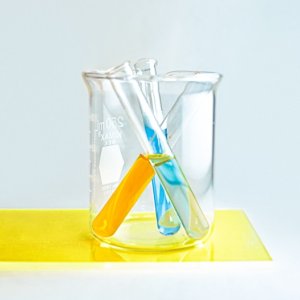Generics Giant Taps Into the Biosimilars' Market

STORY INLINE POST
Q: How did Apotex increase its presence in Mexico and Latin America in 2015?
A: Apotex went through a renovation period in 2015 during which we reviewed the company’s main processes from reducing centralization to promoting a radical change in the human resources area to adapt to new industry trends. We are now reaping the rewards of the transformation, including obtaining the Good Manufacturing Practices (GMP) certification by COFEPRIS, reversing the downward trend in our market share and increasing customer satisfaction while achieving stronger brand presence among our clients. Our progress is partly explained by the double-digit growth exhibited by private label medicines in pharmacy chains, which are looking for manufacturers with GMP certification.
Q: Apotex is a company with a strong product portfolio. What new innovative medicines do you have in your pipeline?
A: We cover solid dosage and injectables to aerosols and biopharmaceuticals. Apotex has more than 600 products under development across all technology platforms. In Mexico, we have a strong pipeline focused on the central nervous system, cardiometabolic diseases and specialty products. The mission of Apotex in the country is to strengthen its growth through the commercialization of new, world class quality molecules.
Q: How will your experience in the US market help you to tap into Mexico’s biosimilar industry?
A: Apotex is a rising competitor in the global biosimilar market. In February 2015, the FDA approved Apotex’s Filgrastim. This is the second biologic product Apotex has submitted to the FDA via the abbreviated approval pathway created by the Biosimilar Price Competition and Innovation Act (BPCIA). Apotex also has a biosimilar application for the long-acting pegylated formulation of filgrastim under FDA review. Filgrastim is used for helping cancer patients under chemotherapy fight infections and fever by boosting white blood cell counts. The fact that biosimilars are set to boom in the US market in the next couple of years will help Mexico develop a substantial local industry. According to IMS Health, the Mexican biotechnology market is growing faster than other segments in the pharmaceutical industry and this trend will continue thanks to 12 biopharmaceutical complex molecules losing their patents in the upcoming years.
Biosimilars cannot be treated in the same way as small chemically synthesized generics since traditional safety standards, efficacy and quality are not suitable for proving that a particular biological medicine is a generic version of another. In Mexico the Ministry of Health and COFEPRIS published an amendment to the General Health Law in October 2011, aimed at establishing new provisions for the approval of biopharmaceuticals and biocomparables including approval requirements, prescription rules, the role of COFEPRIS in determining the scope of pre-clinical tests and trials and labelling requirements, all of which were aligned to European Medicines Agency (EMA) regulations. We believe there are clear rules and regulations for these products in Mexico now and we are planning to start the application process for biocomparables soon.
Q: Do you anticipate the Trans Pacific Partnership (TPP) having a discernable impact on the local biosimilar industry?
A: A paragraph addressing unreasonable shortenings and delays was incorporated in TPP provisions and although the obligation is in the text, Mexico might not be in the position to grant the extension of the patent term. The country has already granted five years of data protection for new chemical entities, including combination products, and it was possible to exempt Mexico from granting data protection for new uses as it provides data protection for combinations. Eight years were granted for products consisting of or containing proteins obtained through biotechnology processes, or five years’ data protection for biologics with the potential to extend market exclusivity. Ensuring intellectual property protection for medicines has expanded the population’s access to innovative medicines in Mexico, which has resulted in increased life expectancy and quality, reduced hospitalization and boosted savings for Mexican households.























